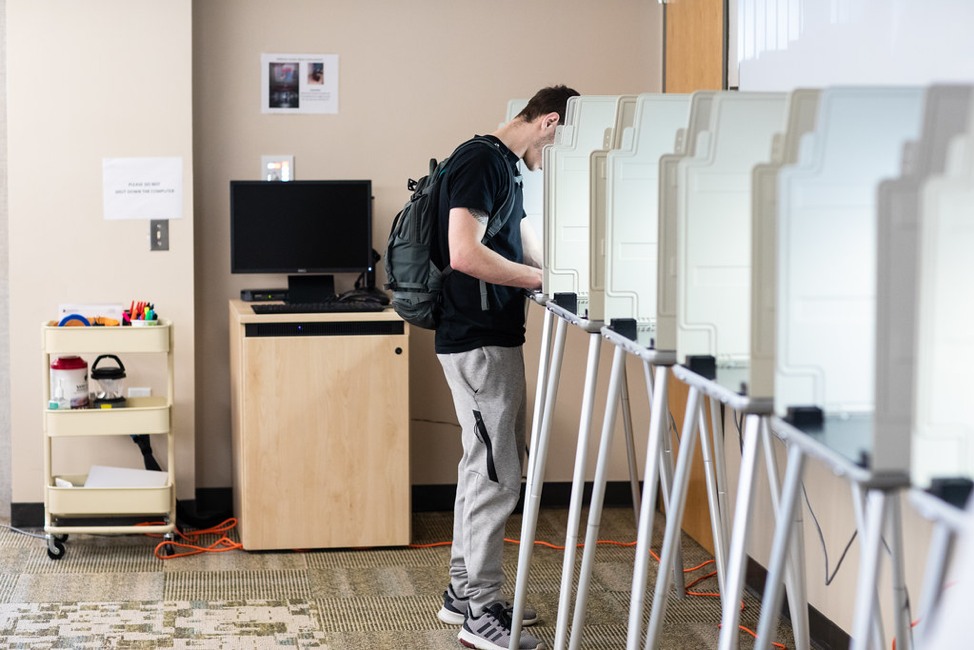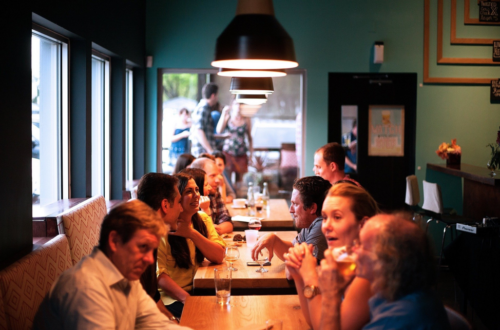After a hectic but safe election season, Florida lawmakers in both the state House and Senate are proposing to implement ‘super’ voting sites. These sites are meant to alleviate long lines while also saving costs during the early voting period.
Sen. George Gainer, R-Panama City, introduced SB774, which would give local election officials the option to implement super voting sites in Florida communities with high early voter turnout. Rep. Thomas “Patt” Maney, R-Fort Walton Beach, also introduced HB365 as an exact bill in the House.
Gainer and Maney introduced super voting sites after Hurricane Michael removed most voting sites in the Gulf and Bay counties right before the 2018 midterm elections. Both counties operated the early version of the super voting sites as part of an emergency order that allowed voters to cast a ballot in any precinct right before election day.
In Florida, early voting begins 10 days before any election and ends three days before the allotted election day.
Voters can cast a ballot at any early voting sites in their registered county during the allotted period. However, during Election Day, voters are only allowed to cast their ballot at their registered precincts.
This is a source of confusion as many voters think that a popular early voting location is also their registered precinct, which is not always the case.
The confusion becomes a problem when voters arrive at the wrong precinct just a few minutes before polls close and cannot get to their correct polling place.
“We actually turned away more voters because they weren’t in the right place on Election Day than actually voted there,” said Craig Latimer, the supervisor of elections for Hillsborough County.
Early voting sites have historically gained popularity this year because of the COVID-19 pandemic. Voting rights groups, campaigns and election officials pushed voters to cast their ballots early as a means to alleviate the high turnout and long lines.
The high election turnout demonstrates that there is a need for bigger election sites.
Under this bill, super voting sites would permit registered voters to cast a ballot at any voting site in their respective county, including on Election Day. Ballots will also be recorded to prevent people from voting twice.
The idea of voting sites is not new to both Florida and the rest of the country. California, Georgia, Texas, Kentucky and Colorado have all used convention centers and sports arenas as their super voting centers.
Even the NBA got involved. Last summer, many basketball teams offered their sports arenas to be used as early and election day voting sites. Sports stars, like LeBron James and Bradley Beal, pushed for this initiative after the death of George Floyd and the shooting of Jacob Blake.
The support for bigger early voting infrastructure is there, but super voting sites still need to meet certain requirements according to the proposed bills and local regulations.
For example, having sufficient parking is a critical component for any polling site. Many potential polling places are great locations, but not having enough designated parking can prevent that from happening. Convention centers and arenas do not have that problem.
In Florida, Gulf and Bay counties have successfully implemented pilot versions of super voting sites—and are clear advocates for this initiative. However, not everyone is on board.
In Miami-Dade County, former mayor and current congressman Carlos Gimenez (R-Fla.), rejected a proposal from the Miami Heat to turn the American Airlines Arena into a voting site during the 2020 election.
Gimenez argued that the city already had an early voting site ready and that the arena was not equipped to handle the infrastructure at the time. Even though Gimenez is no longer the mayor of Miami, his stance against this reveals the complexities behind this initiative.
Election experts also argue against the purpose of super voting sites.
“Voter centers should not be a substitute for polling places,” said Eliza Sweren-Becker, voting rights and elections counsel at the Brennan Center for Justice.
The Brennan Center released a subsequent report arguing that there are better ways of expanding voter access than just creating super voting sites. Allowing people to register to vote on Election Day or even making Election Day a paid holiday could be better measures of improving turnout and election infrastructure.
Despite the mixed messages from election officials and experts on the matter, one thing is clear: Florida’s election laws and polling places will certainly change when the next election rolls around.
Featured image: A registered voter casting a ballot at a polling place. Unmodified photo by Sacramento State used under a Creative Commons license. (https://bit.ly/3k8FL1F)
Check out other recent articles from the Florida Political Review here.





